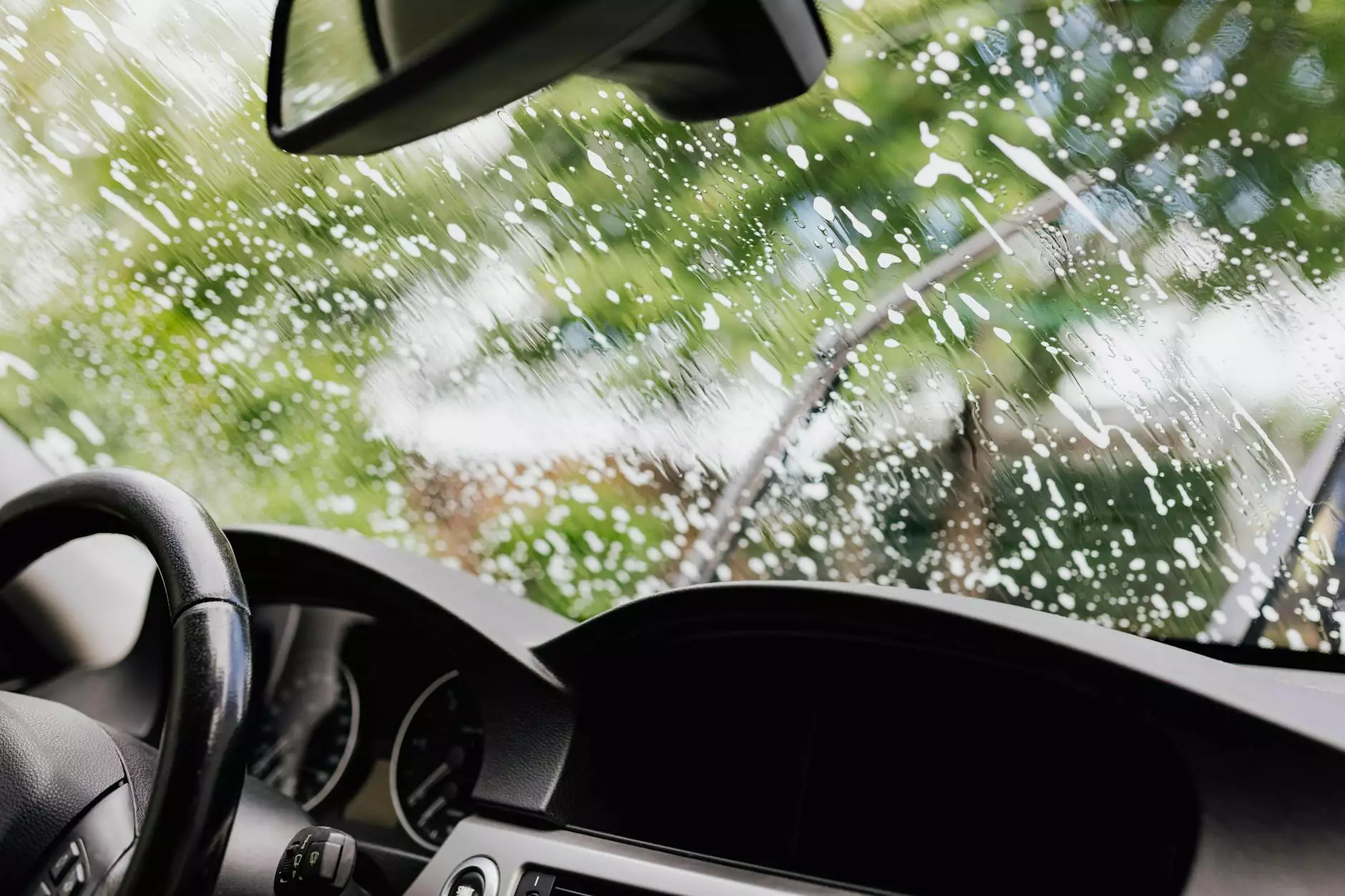Ultimate Guide to Jeep Wheels and Tires

In the world of off-roading, making the right choice regarding Jeep wheels and tires can significantly affect your vehicle's performance, safety, and overall driving experience. Whether you are tackling rocky trails or cruising down the highway, the selection of wheels and tires is crucial to taking on the challenges of diverse terrains. This comprehensive guide offers an in-depth look into everything you need to know about upgrading and maintaining your Jeep's wheels and tires.
1. Understanding the Importance of Jeep Wheels and Tires
Your Jeep’s wheels and tires are not just accessories; they are integral components that determine how your vehicle interacts with the ground. Here’s why selecting the right wheels and tires is vital:
- Traction: The right tires provide the necessary grip on various surfaces, ensuring stability and control.
- Comfort: Well-suited wheels and tires can enhance your ride quality, minimizing vibrations and discomfort.
- Performance: Upgraded wheels can affect weight distribution and aerodynamics, contributing to improved performance.
- Look: Customized wheels can give your Jeep a unique aesthetic appeal that reflects your personal style.
2. Types of Jeep Wheels
When it comes to Jeep wheels, there are several types to choose from based on your driving style and needs. Here’s an overview:
2.1 Steel Wheels
Steel wheels are durable and can withstand rough conditions, making them ideal for off-roading. They tend to be heavier, which can offer better stability on tough terrains. Steel wheels are less expensive than their aluminum counterparts but may not have the best aesthetic appeal.
2.2 Aluminum Wheels
Aluminum wheels are lighter than steel, contributing to better fuel efficiency and performance. They come in various designs and finishes, allowing for greater customization. However, they can be prone to bending on extreme impacts.
2.3 Beadlock Wheels
For serious off-road enthusiasts, beadlock wheels are a preferred choice. They feature a design that secures the tire bead to the wheel, preventing it from becoming unseated during low-pressure conditions. This is particularly useful in rock crawling and off-road racing.
3. Types of Jeep Tires
Selecting the right tires is just as crucial as choosing the right wheels. The three main types of Jeep tires include:
3.1 All-Terrain Tires
Designed for versatility, all-terrain tires perform well both on and off the pavement. They offer decent traction in a variety of conditions, making them a great option for daily drivers who venture off-road occasionally.
3.2 Mud-Terrain Tires
If you love mudding or tackling unpaved trails, mud-terrain tires are made for you. They have larger, more aggressive treads that provide superior grip in mud and loose dirt. Keep in mind, these tires may produce more road noise on highways.
3.3 Street Tires
For those who primarily use their Jeep for city driving or highway cruising, street tires offer improved ride quality and fuel efficiency. They have smoother treads designed for optimal grip on wet and dry pavement.
4. Sizing Your Jeep Wheels and Tires
Correct sizing is essential to ensure compatibility and optimal performance. Here’s what to keep in mind:
4.1 Wheel Size
Common wheel sizes for Jeep models typically range from 15 to 20 inches in diameter. Choosing the right size affects not only fitment but also the overall aesthetics and function of the vehicle.
4.2 Tire Width and Aspect Ratio
Tire width is measured in millimeters, while aspect ratio refers to the height of the tire's sidewall as a percentage of the width. A typical Jeep tire will have a wider stance for better traction, but you'll want to balance between width and vehicle handling.
4.3 Load Rating
Each tire has a load rating indicating how much weight it can support. It’s essential to choose tires that can handle the weight of your Jeep, especially if you plan to carry heavy loads or tow.
5. Upgrading Your Jeep Wheels and Tires
Upgrading your wheels and tires can enhance your Jeep’s off-road capabilities. Consider the following steps:
5.1 Assess Your Needs
Before making any upgrades, consider where you drive most often. This will help determine the wheel and tire type best suited for your needs—whether you need more traction for off-roading or a smoother ride for everyday driving.
5.2 Check Compatibility
Ensure that any new wheels and tires you purchase are compatible with your Jeep model. Consult your owner's manual or a tire expert if you have any doubts.
5.3 Installation and Maintenance
Proper installation is crucial. If you're not comfortable doing it yourself, seek professional help. Furthermore, maintaining tires regularly—such as rotating them and checking air pressure—will extend their lifespan and performance.
6. Maintaining Your Jeep Wheels and Tires
To keep your Jeep's wheels and tires in optimal condition, consider the following maintenance tips:
6.1 Regular Inspections
Frequent visual inspections can catch problems early. Look for signs of damage, uneven wear, or foreign objects lodged in the tread.
6.2 Tire Pressure Monitoring
Maintaining the correct tire pressure is critical. Under-inflated tires can reduce fuel efficiency and increase wear, while over-inflated tires can be dangerous.
6.3 Cleaning
Keep your wheels and tires clean to prevent road grime and brake dust buildup. Use appropriate cleaning products that won’t damage the finishes.
7. Choosing the Right Supplier for Your Jeep Wheels and Tires
Selecting the right supplier is essential to ensure quality products and services. When searching for Jeep wheels and tires, consider:
- Reputation: Look for suppliers with positive reviews and a proven track record.
- Product Range: A wide selection of products ensures you can find the best fit for your needs.
- Expertise: Suppliers who specialize in off-road products tend to have knowledgeable staff who can offer valuable advice.
- Warranty and Support: Choose suppliers who offer warranties on their products and excellent customer support services.
8. The Future of Jeep Wheels and Tires
As technology progresses, we can expect innovations in materials and designs for Jeep wheels and tires. Improvements in tire technology, such as increased durability and performance in various weather conditions, will enhance the off-roading experience. Moreover, the advent of electric vehicles may lead to specially designed wheels and tires that cater to this new generation of vehicles.
Conclusion
When it comes to maximizing your Jeep’s potential, wheels and tires are among the most significant investments you can make. They not only ensure safety and performance but also enhance your vehicle’s overall appearance. By understanding the types, sizes, and maintenance of Jeep wheels and tires, you can make informed decisions that elevate your off-roading adventures. Trust in reputable suppliers and keep your Jeep well-maintained to enjoy countless thrilling rides.









